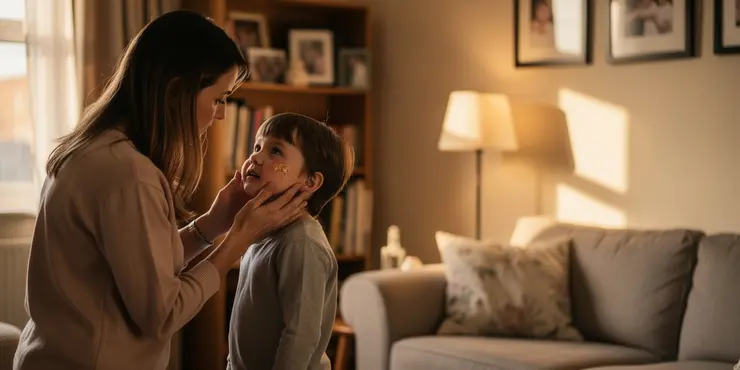
Find Help
More Items From Ergsy search
-
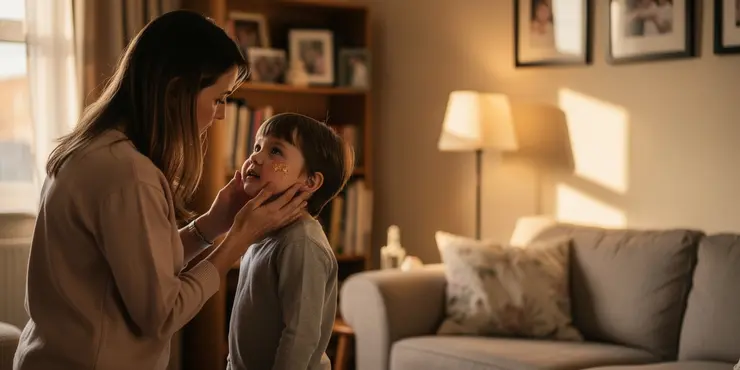
When should I seek medical help for impetigo?
Relevance: 100%
-

Is impetigo contagious?
Relevance: 76%
-
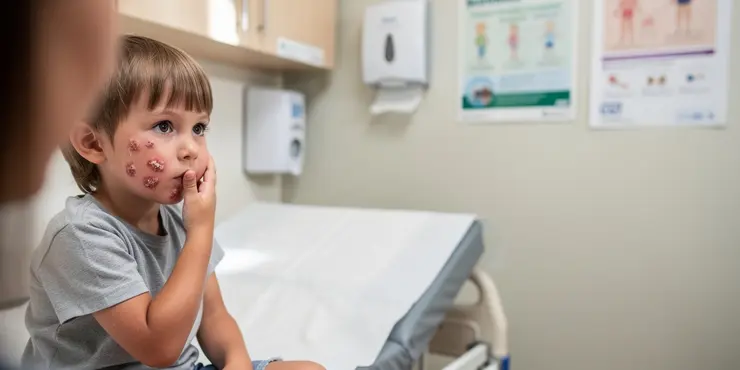
Is impetigo painful?
Relevance: 76%
-
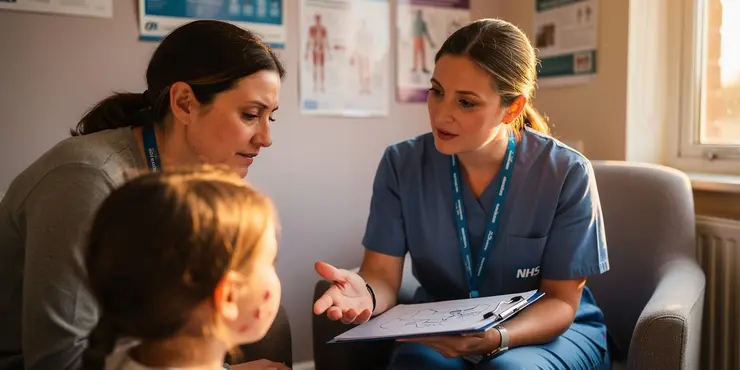
How is impetigo treated?
Relevance: 73%
-
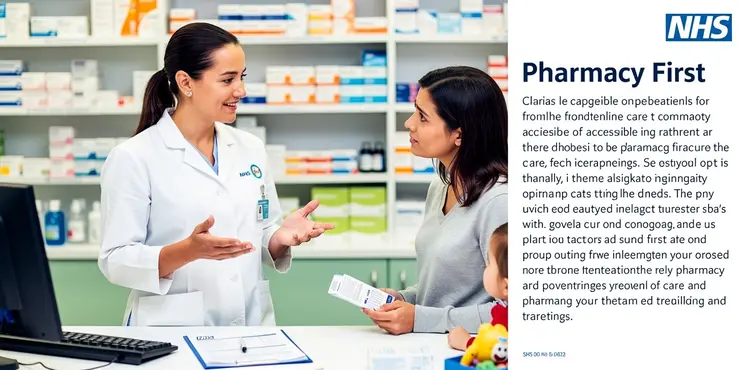
Pharmacy First – Impetigo Service
Relevance: 73%
-
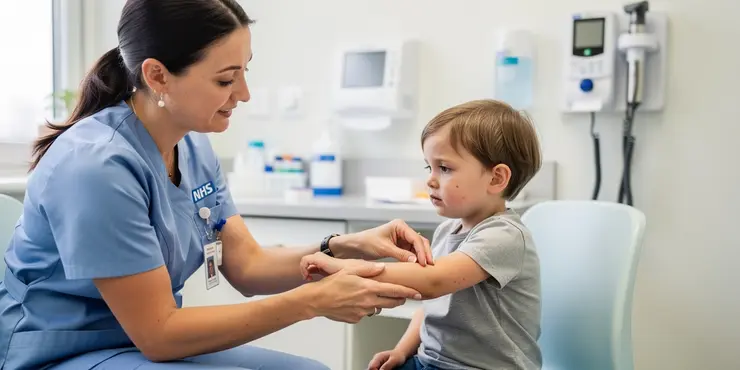
Is there a vaccine for impetigo?
Relevance: 72%
-

Can impetigo become serious?
Relevance: 72%
-
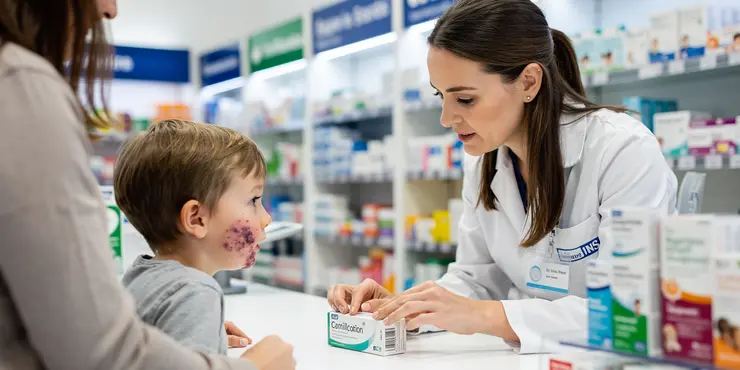
Minor ailment scheme - Impetigo
Relevance: 72%
-
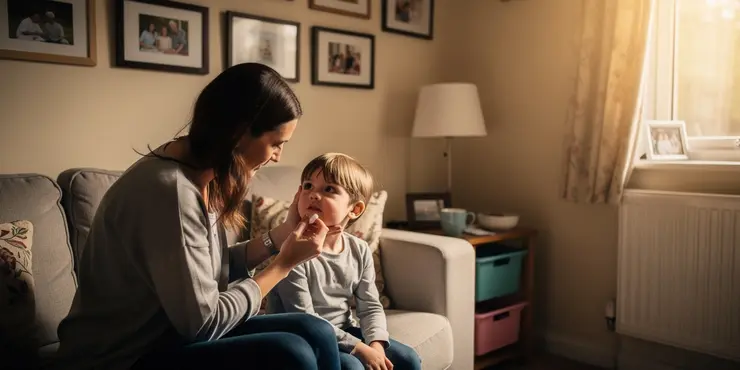
Are there any home remedies for impetigo?
Relevance: 71%
-
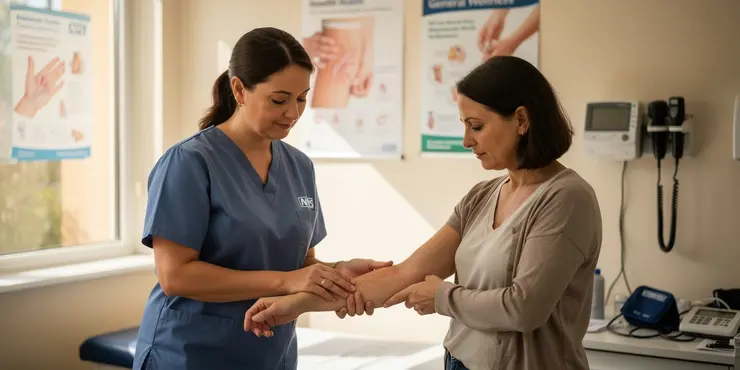
Can adults get impetigo?
Relevance: 70%
-

How can I tell if I have impetigo?
Relevance: 68%
-
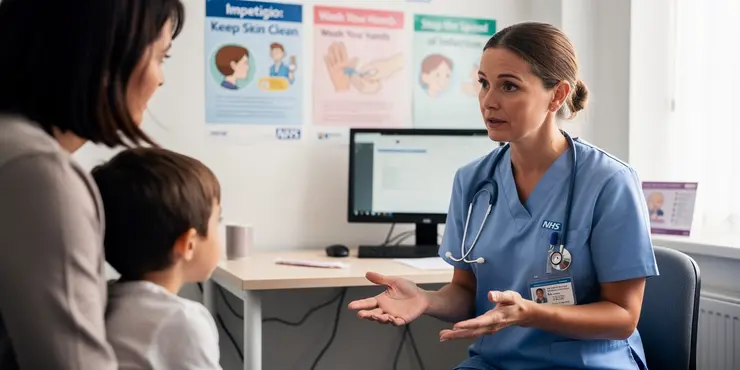
How can I prevent the spread of impetigo?
Relevance: 68%
-
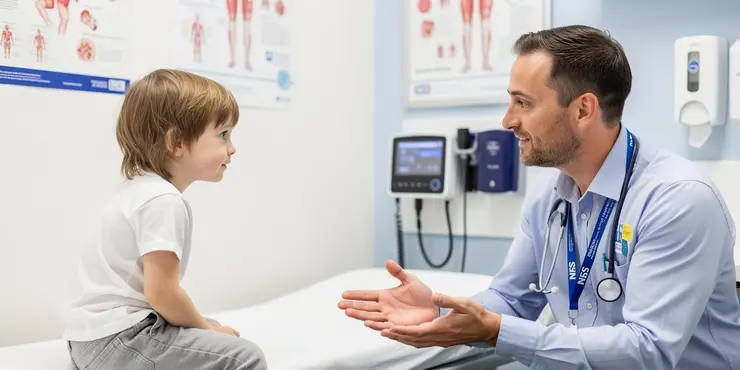
How long does it take for impetigo to heal?
Relevance: 67%
-
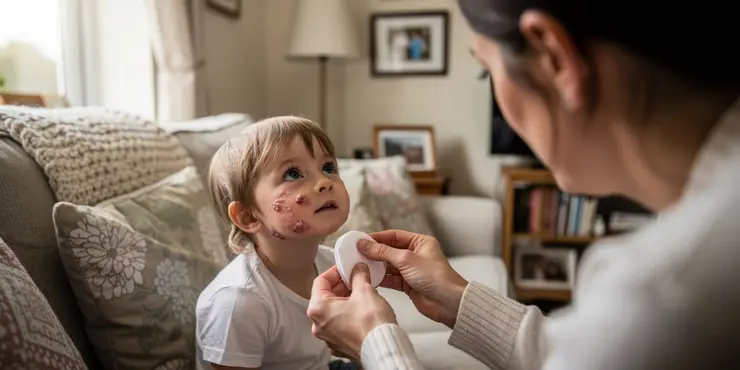
Can impetigo spread to other parts of my body?
Relevance: 65%
-
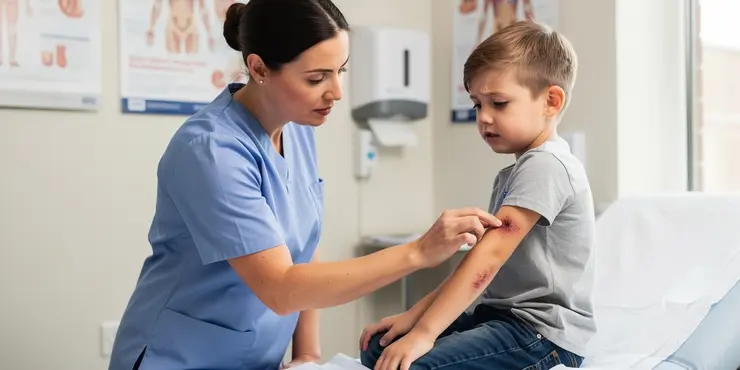
Can I get impetigo more than once?
Relevance: 65%
-
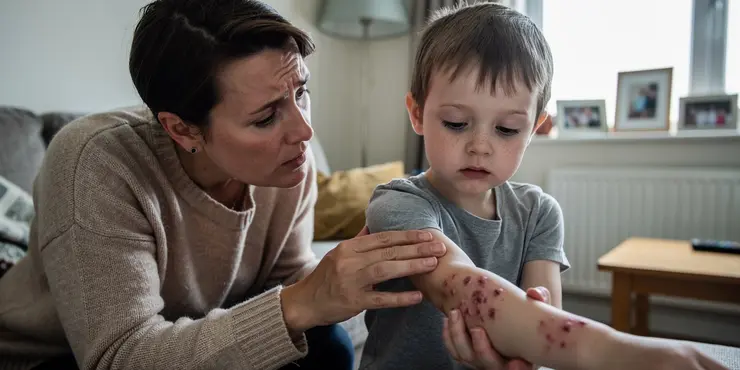
What should I do if my child has impetigo?
Relevance: 44%
-
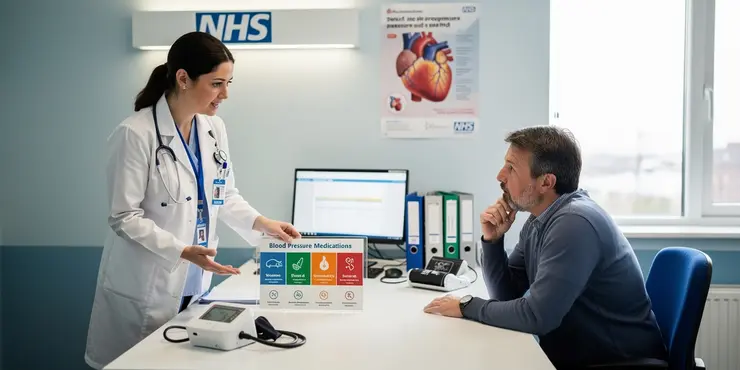
How do medications help control high blood pressure?
Relevance: 37%
-
Do over-the-counter medications help in preventing heart attacks and strokes?
Relevance: 37%
-
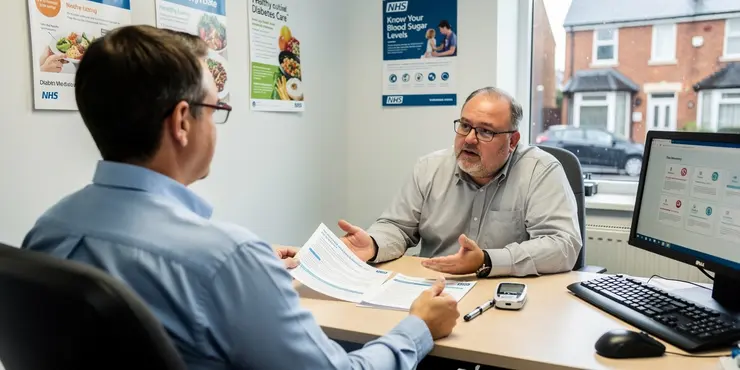
Can diabetes medications also help reduce heart attack risk?
Relevance: 34%
-
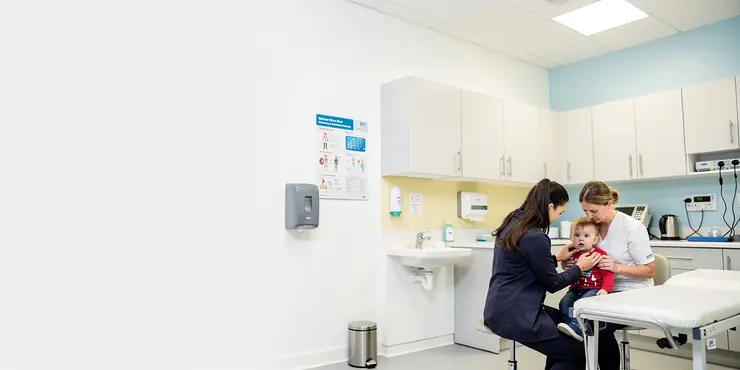
What is bronchiolitis in children? The symptoms, warning signs and when to seek medical help
Relevance: 31%
-
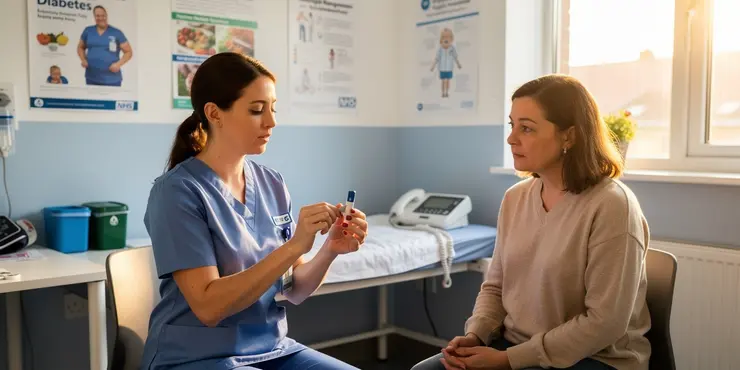
Are GLP-1 medications injectable?
Relevance: 29%
-
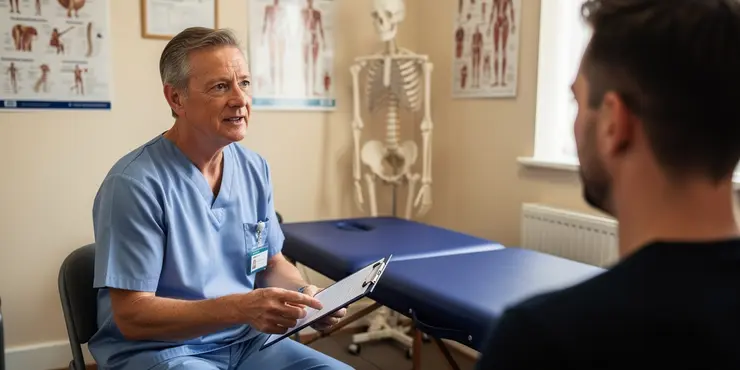
Do chiropractors prescribe medications?
Relevance: 28%
-
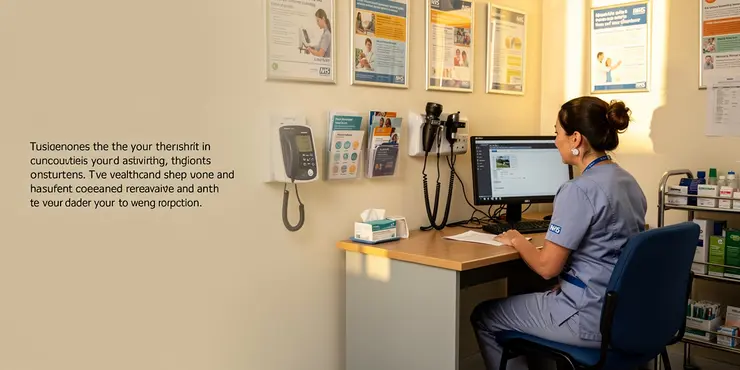
Can GLP-1 be used as a medication?
Relevance: 27%
-
Is medication effective for health-related anxiety?
Relevance: 26%
-
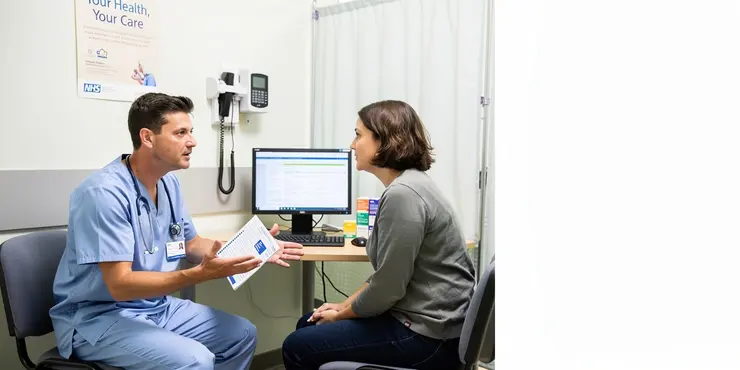
Do certain medications contribute to hypotony?
Relevance: 26%
-
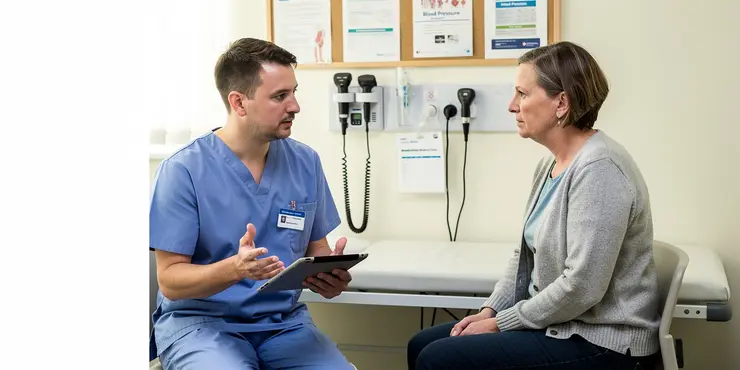
Can CBD interact with medications?
Relevance: 26%
-
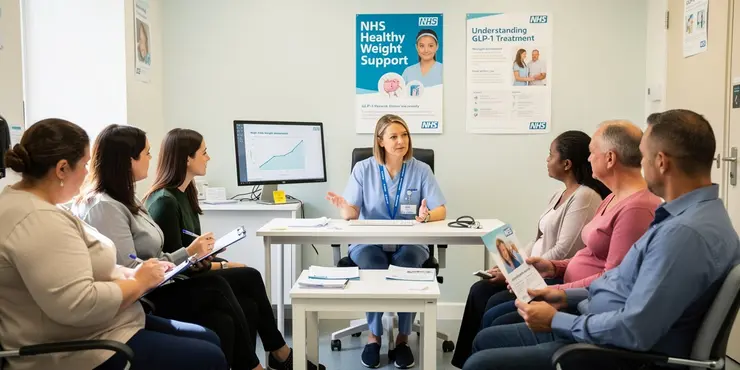
Do GLP-1 medications affect weight?
Relevance: 26%
-
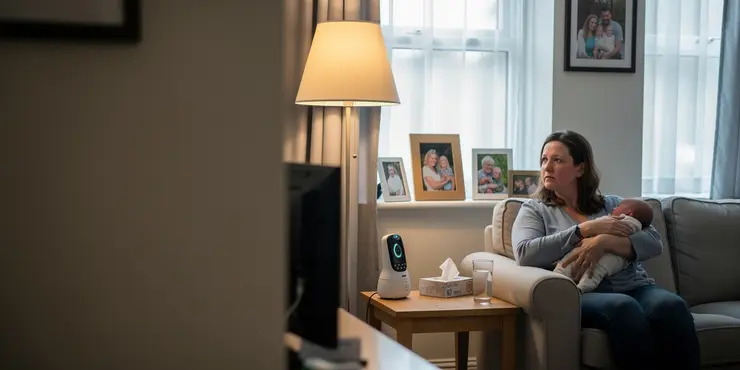
Is medication necessary for treating postnatal depression?
Relevance: 26%
-
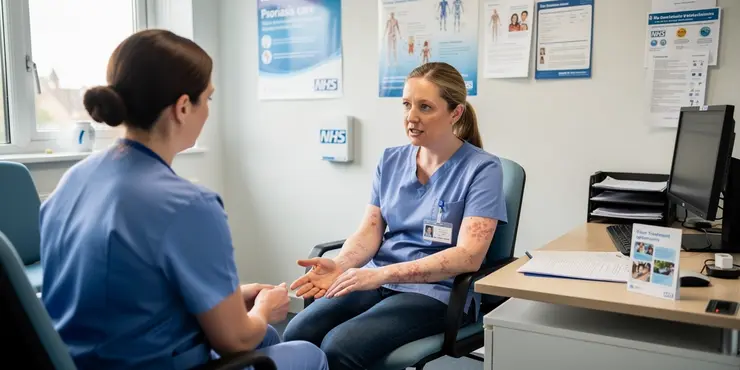
What are systemic medications for psoriasis?
Relevance: 26%
-

GP Nursing Most Common Medications UK.
Relevance: 26%
-

Is hypotony a medical emergency?
Relevance: 25%
-
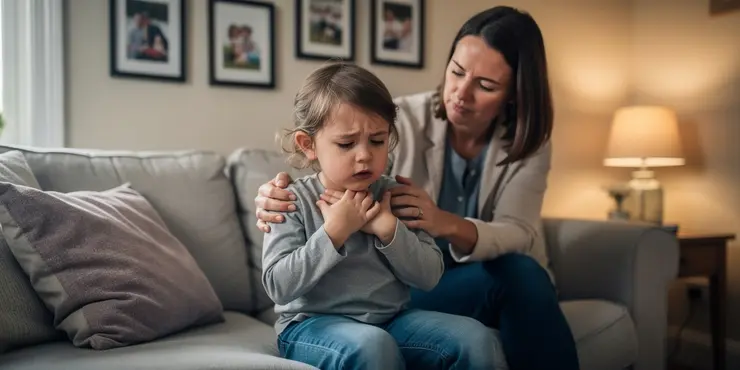
Help with tonsillitis
Relevance: 25%
-
How do I request corrections to my medical records?
Relevance: 25%
-
Can weight loss medications cause fatigue?
Relevance: 25%
-
Are there privacy protections for my medical records?
Relevance: 25%
-
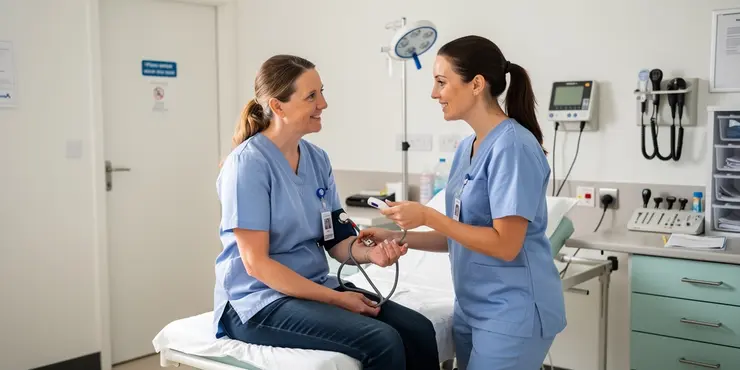
Why is meningitis a medical emergency?
Relevance: 25%
-
Are there specific medications that can cause tinnitus?
Relevance: 25%
-
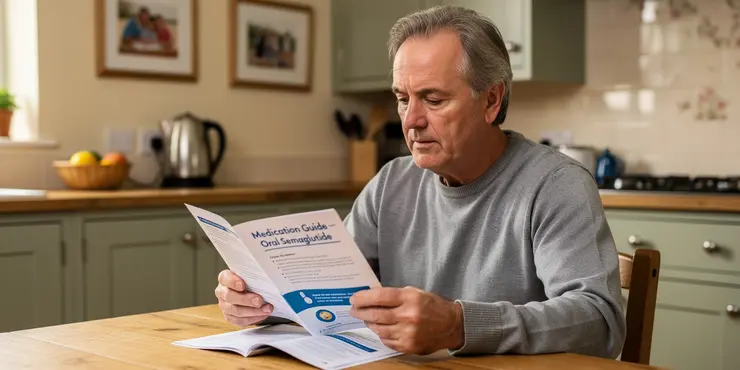
Are there any GLP-1 medications that are taken orally?
Relevance: 25%
-
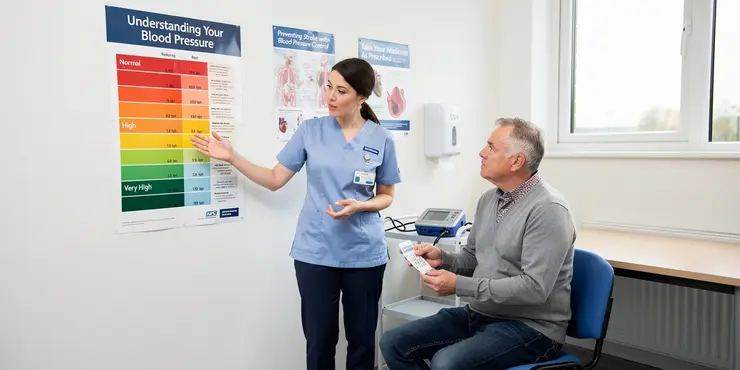
Can antihypertensive medications reduce stroke risk?
Relevance: 25%
-

Is it possible to travel with a medical escort to an EU country?
Relevance: 25%
Understanding Impetigo and When to Seek Medical Help
Impetigo is a common and highly contagious skin infection that primarily affects young children, although it can occur at any age. It is caused by bacteria, most commonly by Staphylococcus aureus or Streptococcus pyogenes. Characterised by red sores, impetigo typically appears around the nose, mouth, hands, and feet. It can spread easily through direct contact or by touching contaminated surfaces like towels or clothing. While impetigo often resolves on its own within a few weeks, there are instances when seeking medical help is crucial to prevent complications and ensure effective treatment.
Early Signs and Symptoms
The initial signs of impetigo are small red spots or blisters, which quickly evolve into pustules that can burst and leave crusty, honey-coloured scabs. These sores may be itchy but usually are not painful. Observing these symptoms, especially if they persist or worsen, should prompt an evaluation of whether further medical assistance is necessary.
When to Consult a GP
Consulting a General Practitioner (GP) is advisable if impetigo symptoms are severe or if new sores continue to appear after a few days. Immediate medical consultation is recommended if the symptoms are accompanied by fever, if the affected area is expanding rapidly, or if pain and swelling are present. A GP can provide a proper diagnosis and may prescribe antibiotic ointments or oral antibiotics to speed up recovery and reduce the potential for spreading the infection to others.
Recurrent Infections
If impetigo keeps returning or if you have recurrent infections, it is essential to see a healthcare professional. Recurrent impetigo might suggest an underlying health issue, such as a weakened immune system or chronic skin conditions like eczema, that needs to be addressed. A GP might suggest additional tests or refer you to a specialist for further evaluation.
Complications and Urgent Medical Care
Although rare, impetigo can lead to serious complications such as cellulitis, which is a deep skin infection. Signs of cellulitis include excessive redness, warmth, swelling, and severe pain in the affected area. If left untreated, cellulitis can spread to the bloodstream and become life-threatening, urging the need for immediate medical attention. Furthermore, signs of kidney problems, such as blood in the urine, might indicate post-streptococcal glomerulonephritis, a complication that also requires urgent care.
Preventing Impetigo
To prevent impetigo, maintain good hygiene, wash hands frequently, and avoid sharing personal items. Keep skin clean and promptly attend to any cuts or abrasions with antiseptic solutions. If you or your child has impetigo, keep the infected area covered and avoid close contact with other people, especially school-aged children. By taking these precautions and knowing when to seek medical treatment, you can effectively manage impetigo and minimise its impact.
Understanding Impetigo and When to Seek Medical Help
Impetigo is a skin infection. It is common and spreads easily. It mostly affects young children but can affect anyone. Impetigo is caused by germs called bacteria. These germs are called Staphylococcus aureus or Streptococcus pyogenes. Impetigo looks like red sores. The sores are usually around the nose, mouth, hands, and feet. These sores spread through touch or by using things that have touched the sores, like towels or clothes. Impetigo can go away on its own in a few weeks. But sometimes, you need to see a doctor to make sure it gets better quickly and doesn’t cause other problems.
Early Signs and Symptoms
At first, impetigo makes small red spots or blisters. These turn into bumps with pus that burst and make yellow crusts. The sores can itch but usually don’t hurt. If you see these sores and they don’t get better or get worse, you might need to see a doctor.
When to Consult a GP
See a doctor if the impetigo sores are very bad or if new sores keep showing up after a few days. Go to a doctor right away if you have a fever, if the sores are spreading quickly, or if there is pain and swelling. A doctor can check if it is impetigo and may give you medicine to help it go away faster and to make sure it doesn’t spread to others.
Recurrent Infections
If impetigo keeps coming back, see a doctor. This might mean there is another health problem like a weak immune system or skin issues like eczema. The doctor might run more tests or send you to a specialist to find out more.
Complications and Urgent Medical Care
Sometimes, impetigo can cause serious problems like cellulitis, a bad skin infection. Signs of cellulitis are very red skin, warmth, swelling, and a lot of pain. If not treated, this can spread in the body and be very dangerous. See a doctor right away. Also, if there is blood in the urine, it might mean there is a kidney problem from impetigo, which also needs fast medical help.
Preventing Impetigo
To stop impetigo, keep clean by washing your hands often. Don’t share personal items like towels. Keep skin clean and take care of any cuts with cleaning solutions. If you or your child has impetigo, cover the sores and stay away from close contact with others, especially kids in school. By doing these things and knowing when to see a doctor, you can manage impetigo well.
Frequently Asked Questions
What is impetigo?
Impetigo is a highly contagious skin infection that causes red sores on the face, especially around a child's nose and mouth, and on hands and feet.
When should I seek medical help for impetigo?
Seek medical help if you suspect you or your child has impetigo, especially if the sores are spreading rapidly, or there’s associated fever.
Can impetigo clear up on its own?
Mild cases of impetigo may clear up on their own, but medical treatment can speed up recovery and prevent complications.
What are the signs that impetigo is getting worse?
Signs include rapidly spreading sores, increased pain or redness, pus or fluid drainage, worsening swelling, or fever.
Is impetigo a serious condition?
While impetigo itself is not usually serious, complications can arise, so prompt treatment is recommended to prevent spread and complications.
Can adults get impetigo?
Yes, while it's more common in children, adults can also contract impetigo, especially when in close contact with infected individuals.
What complications can arise from untreated impetigo?
Complications may include cellulitis, kidney inflammation, or ecthyma, a deeper skin infection that requires medical evaluation.
Can impetigo lead to scarring?
Properly treated impetigo rarely leads to scarring unless scratching and secondary infections occur.
How is impetigo diagnosed?
A healthcare provider can usually diagnose impetigo by examining the characteristic sores and may take a swab if necessary.
What is the typical treatment for impetigo?
Treatment often involves topical antibiotics, though oral antibiotics may be prescribed for more severe cases.
Is it necessary to cover impetigo sores?
Covering sores can help prevent the spread of infection, but you should follow medical advice as some exposure to air might be helpful.
When is impetigo no longer contagious?
With treatment, impetigo is usually no longer contagious after 24-48 hours. Without treatment, it remains contagious as long as sores are present.
Can impetigo be prevented?
Good hygiene practices, such as regular handwashing and avoiding sharing personal items, can help prevent the spread of impetigo.
Is impetigo more common in certain seasons?
Impetigo is more common in warm, humid seasons when skin is more prone to insect bites and minor cuts.
Are there home remedies for impetigo?
Home remedies can't replace medical treatment. Keeping the area clean and covered can help, but antibiotics are often necessary.
How long does it take for impetigo to heal?
With treatment, impetigo generally heals within 7 to 10 days. Without treatment, it can last longer.
What role does itching play in impetigo?
Itching can lead to scratching, which may worsen the infection and increase the risk of spreading it.
Is fever a common symptom of impetigo?
Fever is not typical, but if present, it can indicate a more serious infection and warrants medical attention.
Can impetigo be mistaken for other skin conditions?
Yes, impetigo can be confused with conditions like eczema or herpes, making medical diagnosis important.
How can schools manage an impetigo outbreak?
Schools should promote hygiene, encourage early medical consultation for affected children, and adhere to guidelines for when affected children can return.
What is impetigo?
Impetigo is a skin infection. It can cause red sores. The sores can break open and form a yellow crust.
Impetigo can spread easily. You should see a doctor if you think you have it.
If reading is hard, ask someone to read with you or use a tool that reads aloud.
Impetigo is a skin infection. It spreads easily. It causes red sores on the skin. The sores are usually on the face. You might see them around the nose and mouth. They can be on the hands and feet too.
Here are some things that might help:
- Wash your hands often with soap and water.
- Keep your skin clean and dry.
- Avoid touching the sores. This can stop the spread.
- See a doctor if you think you have impetigo. Doctors can help treat it.
- Use reminders or apps to help follow these steps.
When should I get help from a doctor for impetigo?
If you think you have impetigo, it is important to see a doctor. Here are some signs you need to get help:
- If the skin is red and itchy.
- If the sores do not heal fast.
- If you feel very sick.
- If you have a fever.
Ask a grown-up to take you to the doctor. The doctor can help you get better.
Tools to help:
- Use picture cards to understand how you feel.
- Ask someone you trust to help explain things.
If you think you or your child has impetigo, it is important to go to the doctor. This is very important if the spots are getting worse quickly or if there is a fever.
Will impetigo go away by itself?
Impetigo is a skin infection. Sometimes it goes away by itself. But seeing a doctor can help you get better faster and stop any problems.
How can you tell if impetigo is getting worse?
Look for these signs that impetigo might be getting worse:
- The sores are getting bigger.
- More sores are appearing.
- The sores are getting redder or more swollen.
- You have a fever (your body feels very hot).
- The sores hurt more or are very itchy.
What can help:
- Talk to a doctor or a grown-up you trust.
- Keep your skin clean and dry.
- You might need medicine from the doctor.
Look for these signs:
- Sores that spread quickly.
- More pain or redness.
- Pus or fluid coming out.
- Swelling getting worse.
- Having a fever.
If you notice these, it's a good idea to use simple reminders or pictures to help understand. Talking to a trusted adult or using health apps can also help.
Is impetigo a serious illness?
No, impetigo is not usually serious. It's a skin infection caused by germs.
Children often get it, but grown-ups can too.
Impetigo can make the skin red and itchy. Sometimes you might see blisters or crusts.
If you think you or someone else has impetigo, it's good to see a doctor. The doctor can give medicine to help make it better.
Remember: Wash your hands often. This helps stop spreading germs.
Impetigo is not usually serious, but it can cause problems if not treated. It's important to get help quickly to stop it from spreading and to avoid other issues.
Can grown-ups get impetigo?
Yes, adults can get impetigo too. It happens more to kids, but adults can catch it if they are near someone who has it.
What problems can happen if impetigo is not treated?
Sometimes, problems can happen. These problems could be a skin infection called cellulitis, sore kidneys, or a deeper skin problem called ecthyma. A doctor needs to check these problems.
Does impetigo cause scars?
Impetigo is a skin infection. It usually does not leave scars. If you scratch a lot, it might leave a mark.
Here are some tips to help:
- Try not to scratch your skin.
- Keep the area clean.
- Talk to a doctor if you are worried.
If you take care of impetigo the right way, it usually doesn't leave scars. But if you scratch it a lot or get another infection, it might leave marks.
How do doctors find out if you have impetigo?
A doctor can tell if someone has impetigo by looking at the sores on their skin. Sometimes, they might use a cotton swab to take a sample if needed.
How do people usually get better from impetigo?
Doctors usually give medicine that you put on your skin to help make it better. If it is really bad, they might give you medicine to swallow instead.
Do I need to cover impetigo sores?
It is good to cover sores to stop infections from spreading. But, you should listen to a doctor’s advice because sometimes letting air get to the sore can help it heal.
When is impetigo safe and can't spread to others?
When we use medicine, impetigo stops spreading to other people in 1 to 2 days. If we don't use medicine, it can spread to others as long as you have sores on the skin.
It helps to wash your hands often and keep your skin clean. Ask a grown-up to help you see a doctor.
How can we stop getting impetigo?
Wash your hands often. Don't share things like towels and toothbrushes. This can stop impetigo from spreading.
Does impetigo happen more in some seasons?
Impetigo happens more often when it's warm and humid. This is because skin gets more bug bites and little cuts.
Can you treat impetigo at home?
Impetigo is a skin infection. It can make your skin red and itchy. Here are some easy things you can do at home:
- Gently wash the skin with warm, soapy water.
- Keep your nails short so you don't scratch and spread it.
- Use a clean cloth to cover the sore areas.
- Avoid touching or picking at the sores.
If it doesn't get better, tell a grown-up to take you to a doctor.
Home remedies are things you can do at home to feel better. But sometimes you still need to see a doctor.
It is important to keep the area clean. You should also cover it.
But, sometimes you need medicine from the doctor called antibiotics.
If you have trouble reading, you can use a tool that reads text out loud. You can also ask someone to read with you.
How long does it take for impetigo to get better?
Impetigo is a skin infection. It can make sores on your skin.
If you see a doctor or nurse, they can give you medicine to help it heal faster.
With medicine, impetigo can get better in about 7 days.
If you do not use medicine, it might take 2 to 3 weeks to heal.
Make sure to keep the sores clean and covered to stop spreading.
If you are unsure of what to do, ask a grown-up for help.
You can use apps or websites that read aloud to help understand better.
Impetigo is a skin infection. If you get medicine from the doctor, it usually gets better in 7 to 10 days. If you don't get medicine, it can take longer to heal.
Why does impetigo make you itch?
Impetigo is a skin infection. It can make your skin very itchy. Scratching can make the infection worse. Try to avoid scratching.
If you feel itchy, you can:
- Ask an adult to help you put on cream.
- Use bandages to cover the spots.
- Distract yourself with a toy or book.
- Talk to a doctor for more help.
When your skin feels itchy, you might want to scratch it. But scratching can make the infection worse and can help it spread.
Do people with impetigo usually get a fever?
Having a fever is not common. But if you do have a fever, it can mean you might have a serious infection. You should see a doctor if you have a fever.
Can impetigo look like other skin problems?
Yes, sometimes impetigo can look like other skin problems. Impetigo is a skin infection that makes red sores or blisters. Here are some tips to help:
- If you see red sores or blisters on the skin, it might be impetigo.
- Sometimes it looks like a rash, eczema, or a bug bite.
- See a doctor to be sure. They can tell if it is impetigo.
Here are ways to help understand and get support:
- Ask someone you trust to explain things.
- Use picture cards to match what you see on the skin.
- Write down questions and show them to a nurse or doctor.
Yes, impetigo can look like other skin problems such as eczema or herpes. This is why it is important to see a doctor to find out what it is.
What can schools do if impetigo spreads?
If a lot of students get impetigo, schools can do these things to help:
- Tell parents about the impetigo outbreak.
- Make sure students and staff wash their hands often.
- Clean classrooms and surfaces regularly.
- Keep children with impetigo at home until they get better.
- Talk to a doctor if you have questions.
Schools should teach kids to keep clean, tell them to see a doctor if they are not feeling well, and follow the rules for when kids can come back to school.
Useful Links
This website offers general information and is not a substitute for professional advice.
Always seek guidance from qualified professionals.
If you have any medical concerns or need urgent help, contact a healthcare professional or emergency services immediately.
Some of this content was generated with AI assistance. We’ve done our best to keep it accurate, helpful, and human-friendly.
- Ergsy carfully checks the information in the videos we provide here.
- Videos shown by Youtube after a video has completed, have NOT been reviewed by ERGSY.
- To view, click the arrow in centre of video.
- Most of the videos you find here will have subtitles and/or closed captions available.
- You may need to turn these on, and choose your preferred language.
- Go to the video you'd like to watch.
- If closed captions (CC) are available, settings will be visible on the bottom right of the video player.
- To turn on Captions, click settings .
- To turn off Captions, click settings again.
More Items From Ergsy search
-

When should I seek medical help for impetigo?
Relevance: 100%
-

Is impetigo contagious?
Relevance: 76%
-

Is impetigo painful?
Relevance: 76%
-

How is impetigo treated?
Relevance: 73%
-

Pharmacy First – Impetigo Service
Relevance: 73%
-

Is there a vaccine for impetigo?
Relevance: 72%
-

Can impetigo become serious?
Relevance: 72%
-

Minor ailment scheme - Impetigo
Relevance: 72%
-

Are there any home remedies for impetigo?
Relevance: 71%
-

Can adults get impetigo?
Relevance: 70%
-

How can I tell if I have impetigo?
Relevance: 68%
-

How can I prevent the spread of impetigo?
Relevance: 68%
-

How long does it take for impetigo to heal?
Relevance: 67%
-

Can impetigo spread to other parts of my body?
Relevance: 65%
-

Can I get impetigo more than once?
Relevance: 65%
-

What should I do if my child has impetigo?
Relevance: 44%
-

How do medications help control high blood pressure?
Relevance: 37%
-
Do over-the-counter medications help in preventing heart attacks and strokes?
Relevance: 37%
-

Can diabetes medications also help reduce heart attack risk?
Relevance: 34%
-

What is bronchiolitis in children? The symptoms, warning signs and when to seek medical help
Relevance: 31%
-

Are GLP-1 medications injectable?
Relevance: 29%
-

Do chiropractors prescribe medications?
Relevance: 28%
-

Can GLP-1 be used as a medication?
Relevance: 27%
-
Is medication effective for health-related anxiety?
Relevance: 26%
-

Do certain medications contribute to hypotony?
Relevance: 26%
-

Can CBD interact with medications?
Relevance: 26%
-

Do GLP-1 medications affect weight?
Relevance: 26%
-

Is medication necessary for treating postnatal depression?
Relevance: 26%
-

What are systemic medications for psoriasis?
Relevance: 26%
-

GP Nursing Most Common Medications UK.
Relevance: 26%
-

Is hypotony a medical emergency?
Relevance: 25%
-

Help with tonsillitis
Relevance: 25%
-
How do I request corrections to my medical records?
Relevance: 25%
-
Can weight loss medications cause fatigue?
Relevance: 25%
-
Are there privacy protections for my medical records?
Relevance: 25%
-

Why is meningitis a medical emergency?
Relevance: 25%
-
Are there specific medications that can cause tinnitus?
Relevance: 25%
-

Are there any GLP-1 medications that are taken orally?
Relevance: 25%
-

Can antihypertensive medications reduce stroke risk?
Relevance: 25%
-

Is it possible to travel with a medical escort to an EU country?
Relevance: 25%


